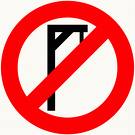
World Day Against the Death Penalty
Urgent need for abolition also concerns journalists
Reading time: (Number of words: )
On the eve of the 6th World Day Against the Death Penalty tomorrow, Reporters Without Borders would like to highlight the fact that this archaic form of punishment, whose continuing use is a political and human rights outrage, is still being used against journalists and those who defend free speech.
"It would be inappropriate, when talking about the death penalty, to suggest that its use in some cases is more appalling than in others," the press freedom organisation said. "But we want to highlight one of its pernicious aspects, which directly concerns journalists and free expression, with the aim of responding once and for all to those who still hesitate to support calls for the abolition of this irreversible punishment on the grounds that it is only used against the most horrible criminals."
The most emblematic case today is in a country which, paradoxically, is under the surveillance of powerful parliamentary democracies - Afghanistan. Sayed Perwiz Kambakhsh, a young journalist and student, and contributor to the magazine Jahan-e Naw ("New World"), languishes in a Kabul prison cell awaiting the outcome of the interminable appeal proceedings against his conviction on a blasphemy charge.
Despite demonstrations by many fellow Afghan journalists and writers, this young man is still under the sentence of death that was issued by a court in the northern city of Mazar-i-Sharif in January 2008, at the end of a summary trial behind closed doors at which he was not defended by a lawyer.
In just one week’s time, on 17 October, he will begin his second year in detention, which in itself is an appalling punishment for someone whose only crime was to have downloaded and kept articles about the role of women in Muslim society. A medical report confirms that he has been tortured while in detention.
A similar case in Iran last year highlighted how the death penalty can be a terrifying tool for silencing dissenting voices. Adnan Hassanpour, a 26-year-old journalist in Iranian Kurdistan who wrote for the now banned weekly Asou and various foreign news media, was arrested on 25 January 2007 and imprisoned in Mahabad (Kurdistan).
After sentencing him to death twice for "subversive activities against national security," the Iranian courts finally decided in September of this year that he could not be regarded as a "mohareb" (enemy of God) and transferred his case to a civil court in Kurdistan. This impassioned young advocate of Kurdish cultural rights is now being held in Sanandaj. He has already gone on hunger strike twice in protest against his prison conditions.
The charge of being "mohareb," a very vaguely defined capital crime, is often used in Iran as a weapon for threatening those who might be tempted to defy the government of the day. The blogger Mojtaba Saminejad, for example, was accused in 2005 of insulting the prophets before finally being acquitted.
Iranians who campaign for the abolition of the death penalty are also liable to the target of systematic repression. The authorities have for years been venting their anger on journalist and abolitionist Emadoldin Baghi, who has often been jailed. He was last arrested on 14 October 2007 after being charged with "propaganda against the regime" and publishing secret government documents "obtained with the help of detainees held for violating the security of special establishments."
He had just founded Guardians of the Right to Life, the first organisation to be formed in Iran with the specific aim of campaigning against the death penalty. The winner of the French republic’s human rights prize in 2005, Baghi served a three-year prison sentence from 2000 to 2003 after writing a book about a 1998 wave of murders of intellectuals and journalists, and a column for the daily Neshat defending a modern view of Islam and its relationship to the death penalty.
But the Iranian government is not giving any ground. In fact, the parliament passed an extremely harsh bill on its first reading in July that is intended to "reinforce penalties for crimes against society’s moral security." If definitively adopted, this law would be unique in the world, making the "creation of blogs and websites that promote corruption, prostitution or apostasy" punishable by hanging or by "amputation of the right hand and left foot."
Our concerns are not limited to the Muslim world. The Ethiopian authorities jailed the leaders of the main opposition party on charges of high treason and genocide in November 2005 after a wave of rioting and bloodshed was triggered by the announcement that Prime Minister Meles Zenawi’s party had won the parliamentary elections.
Around 20 pro-opposition newspaper publishers and editors were also jailed on the same charges. They were all eventually acquitted or pardoned in 2007, but before that, some of them were sentenced to death for what was regarded as an ethnically-motivated coup attempt.
The case of radio journalist and Black Panther Party member Mumia Abu-Jamal in the United States serves as a reminder that capital punishment still has not been abolished in the world’s biggest economy. Sentenced to death in 1982 for the fatal shooting of a policeman, Daniel Faulkner - which he denies doing - Abu-Jamal has spent 26 years on death row. A Philadelphia federal appeal court commuted the sentence in March of this year to life imprisonment. The prosecution could still appeal.

Poems for the Hazara
The Anthology of 125 Internationally Recognized Poets From 68 Countries Dedicated to the Hazara
Order Now









Forum posts
14 October 2008, 05:29, by sakhi
سلام به دوستان کابل پرس :
اگه ممکن باشد از اخبار انگلسی و فارسی تان را روزانه در ایمل روان کنی بهتر خواهد بود تشکر